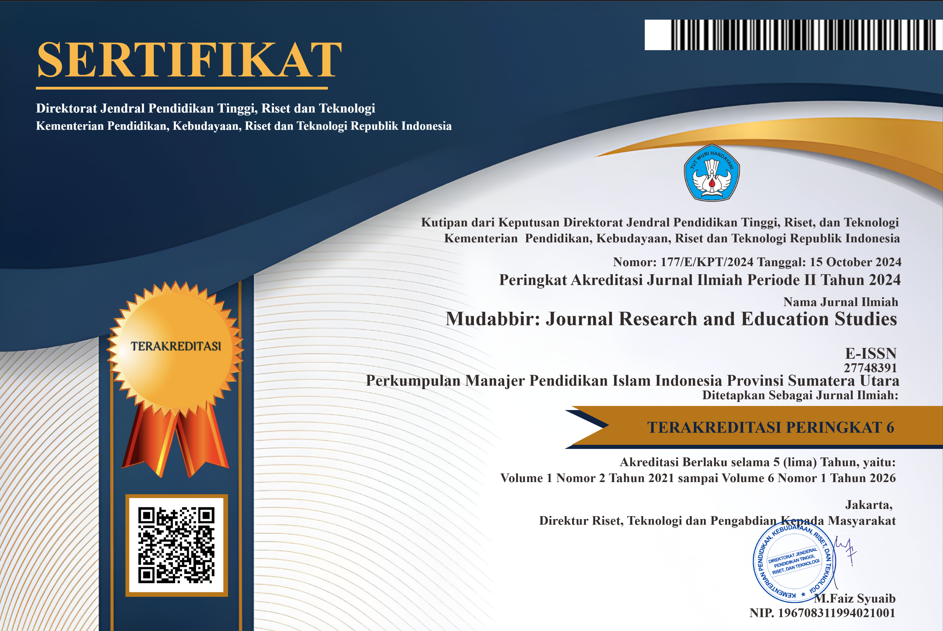The Relationship Between Syllable Awareness And Pronunciation Tendencies Among Indonesian Students
DOI:
https://doi.org/10.56832/mudabbir.v5i2.1190Keywords:
Syllable Awareness, Pronunciation, EFL Students, Consonant Clusters, And Phonological InterferenceAbstract
This research investigates the connection between syllable awareness and pronunciation preferences among Indonesian EFL students. Using a structured online survey, data were gathered from 25 Indonesian EFL students using a quantitative descriptive approach. The instrument comprised syllable-counting tasks, stress awareness questions, and reflective prompts for pronunciation difficulties. The findings show that, although the majority of students have valid syllable recognition in familiar English words, a significant number still miscount syllable counts in more sophisticated structures owing to spelling interference and first language (L1) transfer. Notably, errors frequently occur in words with consonant clusters, which learners typically follow Indonesian phonological rules by adding vowel sounds (epenthesis). The results indicate a significant association between syllable awareness and pronunciation accuracy. Students with higher awareness are more likely to have nativelike pronunciation, but those without this awareness are more likely to make phonological mistakes. This study highlights the teaching value of including explicit syllable instruction and auditory training in EFL classrooms to improve learners' phonological skills and spoken English proficiency.


















